Daisuke Asakura is a Japanese musician, songwriter and producer who is known for his compositional work and skill at the keyboards.

Michihiro Kuroda, or Rin to his fans, was the lead vocalist in the Japanese group Iceman. The group lasted from about 1996-1999. Since then Michihiro has pursued a solo career. Michihiro has released 10 CDs and videos, along with 6 books. In 2006 he teamed up with Iceman guitarist Kenichi Ito once again for a more rock oriented group known as Scarecrow. The group has released a single, titled "Steal your misery". 2006-2009 Scarecrow has released 2 albums and 4 singles and 2 live videos.
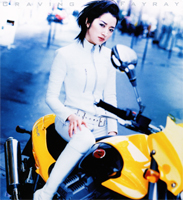
Craving is Japanese singer songwriter Fayray's first studio album, released on May 26, 1999. The album was produced by Daisuke Asakura.
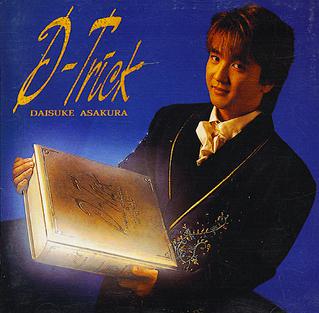
D-Trick is the second solo album by Daisuke Asakura, as well as the last solo album released by him before he joined the popular J-pop group Access. It was released on September 2, 1992 and features vocals by Reimy on track 5 and Hiroyuki Takami on tracks 5, 7 and 12.

The Electromancer is the second solo album released by Daisuke Asakura on July 21, 1995, and the first solo album released by Asakura after his departure from the popular J-pop group Access. It features vocals by Takanori Nishikawa and Shingo Katsurayama.

21st Fortune is the fourth solo album released by Daisuke Asakura on September 19, 2002.

Violet Meme -Murasaki no Jyouhoudentatsu Chi-(Violet Meme -紫の情報伝達値-), also known as Quantum Mechanics Rainbow I: Violet Meme, is the sixth solo album by artist Daisuke Asakura. It is the first in a series of seven albums released by Asakura in 2004, called Quantum Mechanics Rainbow. Each album revolves around a different color of the rainbow and a different term relating to Quantum Mechanics. This album revolves around the color violet. One piece of information worth noting concerning this album is track 7, "Mona Lisa Overdrive" as its title could possibly be a reference to the cyberpunk novel by William Gibson of the same name.

Indigo Algorithm -Ai no Denshi Kisuuhou-, also known as Quantum Mechanics Rainbow II: Indigo Algorithm, is the seventh solo album by artist Daisuke Asakura. It is the second in a series of seven albums released by Asakura in 2004, called Quantum Mechanics Rainbow. Each album revolves around a different color of the rainbow and a different term relating to Quantum Mechanics. This album revolves around the color indigo. The album also contains a re-arrangement of a song originally performed by another, now defunct, band that Daisuke Asakura had produced in the past, The Seeker. It also contains guest vocals by Takatoshi Shindo.

Blue Resolution -Ao no Shikaku Kaiseki do-, also known as Quantum Mechanics Rainbow III: Blue Resolution, is the eighth solo album by artist Daisuke Asakura. It is the third in a series of seven albums released by Asakura in 2004, called Quantum Mechanics Rainbow. Each album revolves around a different color of the rainbow and a different term relating to Quantum Mechanics. This album revolves around the color blue. It also contains guest vocals by Mayumi Fujita.

Green Method -Midori no Chuuyou Chitsuyo Kei-, also known as Quantum Mechanics Rainbow IV: Green Method, is the ninth solo album from Japanese musician Daisuke Asakura released on September 15, 2004.

Yellow Vector – Ki no Taji Gen Shikousei-, also known as Quantum Mechanics Rainbow V: Yellow Vector, is the tenth solo album from Japanese musician Daisuke Asakura released on November 30, 2004. The album is the fifth in the Quantum Mechanics Rainbow series. The concept of this series is "one album for every rainbow color and a different Quantum Mechanics term". Track 7 is dedicated to D.A.N.K, a boy band Asakura formed in a futile attempt to copy the popularity of Japanese music company Johnny’s Entertainment Company. Tracks 1 and 8 make references to physicist Erwin Schrödinger and mathematician Pierre-Simon Laplace, respectively. Track 5 contains guest vocals from Mayumi Fujita, who has performed vocals on several of Asakura’s Quantum Mechanics Rainbow albums.

Orange Compile -Daidai no Noudou Hensekishiki-, also known as Quantum Mechanics Rainbow VI: Orange Compile, is the eleventh solo album from Japanese musician Daisuke Asakura released on December 31, 2004. The album is the sixth in the Quantum Mechanics Rainbow series. The concept of this series is "one album for every rainbow color and a different Quantum Mechanics term".

Red Trigger -Aka no Yuuhatsu Omoi Douki-, also known as Quantum Mechanics Rainbow VII: Red Trigger, is the twelfth solo album from Japanese musician Daisuke Asakura released on March 3, 2005. The album is the seventh and final in the Quantum Mechanics Rainbow series. The concept of this series is "one album for every rainbow color and a different Quantum Mechanics term".
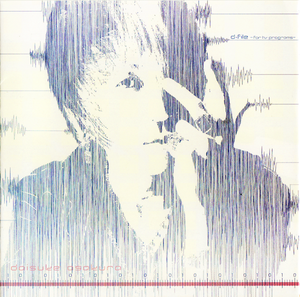
d・file -for tv programs-, is the thirteenth solo album from Japanese musician Daisuke Asakura released on July 19, 2006. According to the title, each track on the album was used in a Japanese television program, but it has never been specified by Asakura in exactly which television programs the tracks were used.
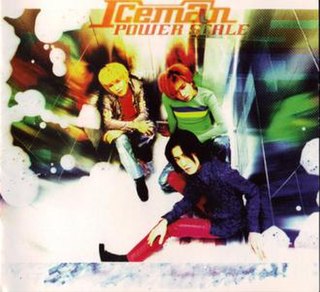
Power Scale is the first album released by Japanese pop rock trio Iceman on March 26, 1997.
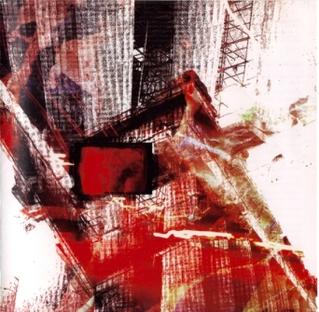
Gate II is the third album released by Japanese pop rock trio Iceman on May 21, 1998. It is also the first in a small series of albums released by Iceman from 1999 until their official departure from the Japanese music scene in 2003. This series includes three studio albums, as well as 1 remix album and 1 “analog” album. This album also contains the single “Shining Collection,” which since its use in the anime Gravitation, has gained a substantial following among the anime/manga community.
Gate I is the fourth album released by Japanese pop rock trio Iceman. It was released on May 21, 1998. It is also the second in a small series of albums released by Iceman from 1999 until their official departure from the Japanese music scene in 2003. This series includes three studio albums, as well as 1 remix album and 1 “analog” album. Track 8 on this album, “Gate I”, was also rerecorded by Daisuke Asakura and released as a single, being part of his 2008 project “Da Metaverse ~100 songs for 1000 days~".
Supernal Liberty is an album by Nana Mizuki. It was released on April 16, 2014 in three editions: a CD only edition and two limited CD+BD/DVD editions. Two limited editions includes two videos: photo shooting of the album and a special edition of the documentary Natsu no Kakera~ Mizuki Nana 2013 Natsu no Dekigoto.
Kenichi Itō is the name of several people, including:
















